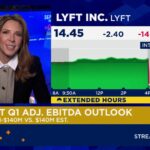
Major retailers are extending their summer sales windows in a bid to capture consumer spending ahead of a potentially uncertain economic period.
Amazon has lengthened its Prime Day event to four days, from 8–11 July, while Walmart, Target, and TikTok Shop have launched parallel sales that overlap or extend beyond the Prime Day window.
This aggressive discounting reflects heightened competition in the retail sector, as companies seek to gain market share amid shifting consumer behaviour, rising inflation, and looming concerns over new tariffs on Chinese imports.
Amazon stretches prime day amid tariff concerns
Amazon’s Prime Day, originally a 48-hour event, now runs for 96 hours. The company said the extended window allows consumers more time to find value during a period of economic pressure.
The timing of this expansion coincides with reports of possible tariff increases on Chinese-made goods, a move that could raise prices for both retailers and consumers in the coming months.
To offset potential supply chain volatility, Amazon has also strengthened its logistics infrastructure in key fulfilment regions. Shoppers in the United States are expected to spend an estimated $23.8 billion during this year’s Prime Day period, a 24% increase from 2024, according to analysts cited by RetailToday.
Sales are being driven by a mix of AI-personalised product placements, limited-time discounts, and exclusive offers for Prime members.
Analysts say Amazon’s decision to double the event’s duration could set a precedent for future years, especially as rivals begin to match or exceed the company’s efforts.
Walmart and Target extend deals to close the gap
Walmart has responded with a six-day sale event, aiming to attract both in-store and online shoppers.
The promotion, which began shortly before Prime Day, is being pitched as a broader seasonal campaign rather than a one-off flash sale. Target has adopted a similar approach, extending its summer deals to compete directly with Amazon’s window.
Retail experts note that these longer promotions allow retailers to avoid head-to-head comparisons on exact pricing or shipping speed, while still offering savings across multiple product categories.
This spread in dates also reduces pressure on logistics networks and gives customers greater flexibility when shopping.
Despite not offering a membership-based programme like Amazon Prime, Walmart and Target have leveraged their existing loyalty systems and in-store pickup options to stay competitive.
TikTok shop leans on extended reach and social selling
TikTok Shop, a newer entrant in the US e-commerce space, has launched a 13-day “summer savings” campaign that began in late June and runs through mid-July.
The platform’s model differs from traditional retail giants, relying heavily on influencer marketing and real-time video content to drive engagement and sales.
By leaning on its younger user base and integrating product promotions directly into livestreams, TikTok Shop is positioning itself as a dynamic, socially driven alternative to legacy e-commerce.
Its extended sale period reflects a broader strategy to embed commerce within the entertainment habits of Gen Z and Millennial users.
Industry observers say TikTok’s long event window may not yield the same total sales volume as Amazon’s Prime Day, but it reinforces the growing importance of social commerce and user-generated content in retail marketing strategies.
Market implications and outlook
The expansion of summer sales periods by multiple major retailers indicates a shift in seasonal retail strategy.
Rather than concentrating deals within narrow windows, companies are opting for broader campaigns that span weeks—offering more time for consumer engagement and reducing the risk of site slowdowns or delivery backlogs.
With inflation still affecting household budgets and the threat of new tariffs on the horizon, retailers appear keen to lock in early-season revenue and clear stock ahead of potential supply chain cost increases.
Consumers, in turn, are likely to benefit from extended access to discounted goods—but will also need to navigate a crowded and increasingly complex promotions landscape.
Navigate the shifting tariff landscape with real-time data and market-leading analysis. Request a free demo for GlobalData’s Strategic Intelligence here.















